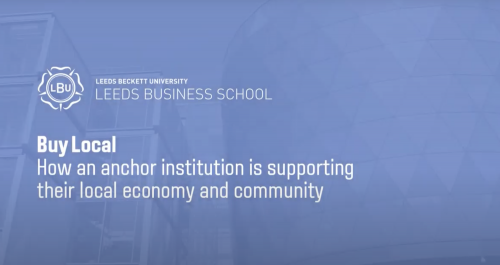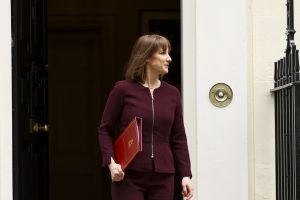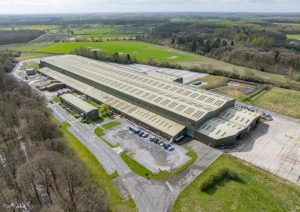Buy Local – How an anchor institution is supporting the local economy and community

A 30 minute session held at Invest North chaired by Alex Turner, joint managing director of TheBusinessDesk.com looked at how a prominent anchor institution – Leeds Beckett University – is leading the way on supporting the local economy through procurement.
Tom Riordan, chief executive of Leeds City Council set the scene to start the discussion.
“Five years ago, we in Leeds decided that we wanted to do more on making sure that we wanted to do more on making sure that we were hitting our social objectives in the city as well as our economic and environmental ones. And we talk a lot about inclusive growth, but we wanted to make it a bit more real, so we started doing a piece of work with Joseph Rowntree Foundation, and Leeds Beckett and other organisations in the city and the region, looking at the role that some of the bigger organisations in the inner city like Leeds, had on social impact and how we could maximise it in a beneficial way.”
He added that the result was a framework that is now in use and that the council is working with 12 different “anchor” organisations to make sure that collectively they can increase their social impact on the city’s people both those who commute in and out of the city and those who call it home.
The chief executive also added that outside of those 12 businesses he sees an opportunity for all businesses to increase social impact by embedding it in their procurement process.
“As a council we’ve just signed a social value charter and changed our procurement rules to make sure we’re taking into account of the social impact of what we do in a more systematic way.”
This led to Sarah Colt, head of procurement at Leeds Beckett University who explained how the university has shaped its procurement activity as one of the city’s anchor organisations.
“We spend around £70m a year on goods, works and services and we aim to spend more of this locally to directly impact our local economy and community.
“We started to do this by amending our procedures, procurement strategy and policies so that small and medium businesses and local suppliers are considered.”
Colt added that the amending of procurement procedures had the greatest impact as it gave local suppliers opportunities at every procurement threshold.
However it is not a one off process. She explains that the focus on local suppliers is regularly communicated to all stakeholders but also monitored through processes such as the PO approvals and new supplier set ups.
In addition the University has started to evaluate its large tenders, which are over £150,000, on not just on price and quality but also on criteria relating to minimising the negative effects on the environment and maximising the positive impact on the local community and economy.
However she adds that the University takes its role as an anchor institution beyond just procurement and views it holistically.
At this point Professor George Lodorfos, dean of Leeds Business School is introduced who shares that the Business School is committed to the socio-economic development of the region and accelerating the levelling up of the economy.
Lodorfos states: “I strongly believe that retaining talent in the North is essential. Without a doubt, small and medium sized enterprises are the backbone of the Northern economy and of our region. With the right support, and an enabling ecosystem SMEs have the potential to play an important role and even accelerate the economic recovery of our region.”
The Business School he adds has been actively to create a supportive ecosystem and is supporting businesses through a number of key programmes such as the Small Business Leadership programme and management knowledge transfer partnerships both of which could support local economy growth by helping SMEs grow and innovate.
Looking ahead to the future Lodorfos sees relationships like the University’s with the council, “meaningful strategic partnerships with key stakeholders”, as a key area of focus for all businesses. The reason being that he believes engagement and integration between businesses and the ecosystems they operate in will provide a unique advantage but also fuel economic growth across – particularly if this can be leveraged in the north.

The event has been curated by TheBusinessDesk.com and backed by a broad coalition of organisations spanning the public and private sectors, led by EY, Squire Patton Boggs, Influential, and Impact Data Metrics.









